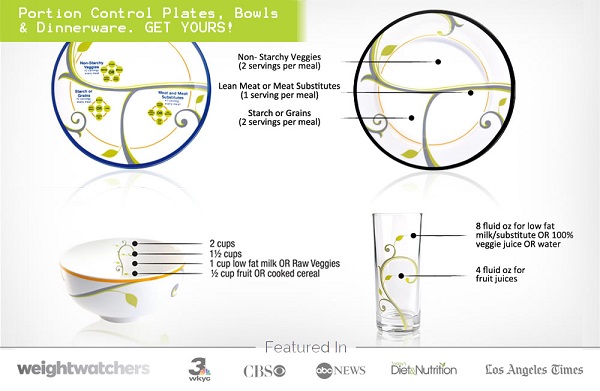With literally millions of drinkers, alcohol is one of the most consumed beverage in the world—even a staple in some cultures. The level of consumption for alcohol is such, some even regard to it as a “liquid gold,” outselling crude oil.
However, as appealing the drink is to many people, alcohol—especially at excessive levels—is not necessarily good for the human body. Not only is too much alcohol consumption intoxicating, much to cause accidents, it is also hampering to health as well, particularly concerning its influence on blood pressure.
Alcohol and Blood Pressure Facts
Right off the bat, let us raise the topic that the link between alcohol consumption and its effect on blood pressure is not entire clear. However, there are hypotheses, which could shed light on how really this substance affect our body in a way that could lead to hypertension.
1. It hampers the function of the central nervous system
Being drunk is a telltale sign that the alcohol is inducing its negative effect on the body’s main control system, the brain. It all boils down to the alcohol’s negative influence on the central nervous system, which is critical in most of the body’s functions, both consciously and unconsciously, including the management of blood pressure (Howes, L.G. & Reid, J.L., 1986).
2. It impairs the baroreceptor
The cardiovascular and the nervous system always work in tandem in the regulation of the body’s blood pressure. In between this interrelationship is a subsystem called the baroreceptor that is integral in the mechanism.
A study by Abdel-Rahman, A.A. & Wooles, W.R. (1987) has found out that the ethanol in alcohol has the power to impair the normal functionality of the baroreceptor, thereby causing an imbalance in the body’s blood pressure.
3. It influences the sympathetic nervous system
The body’s “fight-or-flight” response is controlled by the sympathetic nervous system whose main function is to prepare the body to react in dangerous situation, typically by arousing it, which involves an increase in the blood pressure.
Even outside of the danger context, a simple intake of alcohol induces this mechanism thereby driving a semi-heightened state that is coincided with blood pressure increases (Grassi, G.M. et al, 1989).
4. It affects renin-angiotensin-aldosterone system
Renin, angiotensin, and aldosterone are three hormones that play critical role in the management of blood pressure, either by inducing vasoconstriction to the blood vessel’s tissues (angiotensin), driving the release of certain mineral from within the body (aldosterone), or the conversion of one substance to another (renin).
Alcohol, according to a few studies, seems to affect this system thereby inhibiting their normal capacity to regulate the blood pressure to healthy levels (Jing, L. et al, 2008; Puddey, I.B. et al, 1985; Nieminen, M.M., 1983)
5. It releases cortisol
The presence of stress and the increase in blood pressure are often correlated which makes the existence of cortisol in the blood an indicator that someone is stressed.
A research by Potter, J.F. et al, 1986 has established that people who drink alcohol have an elevated level of cortisol in their blood and conversely becomes significantly lower when they stop drinking.
6. It promotes vasoconstriction
The diameter of the blood vessel’s opening play essential role in the quality of the blood pressure which a person experiences. As a rule of the thumb, the wider the distance from one side to the next in a blood vessel tissue, the better the blood flows through it and thereby has less pressure.
Drinking alcohol, as it appears, has an effect that goes contrary to the ideal dilation of the blood vessel tissues in that it adversely affects the blood pressure by increasing it through blood vessel constriction (Criscione, L. et al, 1989).
As a caveat, the study conducted was based on an animal model, not humans. But the finding does pose possibility in human applications.
7. It damages the blood vessels
Blood vessels are a kind of tissue that is susceptible to inflammation and cause impairment to its otherwise normal functions, subsequently affecting the quality of the person’s blood pressure reading.
In a study conducted by Husain, K. et al, (2008), the presence of alcohol long-term is related to the occurrence of endothelial injury that is causing hypertensive event to the subject.
8. It affects calcium reactivity in the blood vessels
Calcium is a mineral that play pivotal role in the constriction and dilation of the blood vessels, essentially in controlling it to proper levels. It all happens at the cellular level by binding specifically to the endothelial cells that make up the blood vessel tissues.
In a study by Altura, B.M. & Altura, B.T., (1982), it has been further corroborated that the presence of alcohol in the blood causes the blood vessels to constrict arising from the altered activity of calcium ions in the cells.
9. It’s intoxicating and inhibits physical activity
At excess levels, alcohol consumption can causes toxicity, which hampers a person’s ability to function normally. If it became a habit, alcohol drinking can lead to sedentary lifestyle, which plays a risk of high blood pressure.
Twinamasiko, B. et al, (2018) conducted a study involving Ugandans and have established a positive correlation between inactive lifestyle and the prevalence of high blood pressure.
Conversely, by offsetting the negative effect of alcohol drinking, a person can sustain a sober status that could enable him to consciously live a healthy lifestyle, such as by taking active effort in not becoming sedentary.
10. It induces an angiotensin II effect on the adrenals
The adrenal gland is a special component of the human body, especially in the aspect of sympathetic nervous responses—the “fight or flight” we experience during dangerous situations.
People who have alcohol in their blood tend to have higher sensitivity to this natural phenomenon due to the substance’s ability to induce an angiotensin II effect on the adrenal glands (Husain, K. et al, 2008). Although the study was conducted over an animal model, still the finding raises a possibility that could explain how alcohol exactly affects our blood pressure, if consumed.







 We're committed to bringing you the best in health and helping you discover the wonderful world of the DASH diet. If you're looking to control your blood pressure, hypertension, or just looking to get into great health, we're here to help.
We're committed to bringing you the best in health and helping you discover the wonderful world of the DASH diet. If you're looking to control your blood pressure, hypertension, or just looking to get into great health, we're here to help. 



